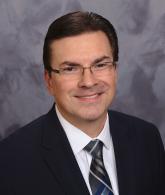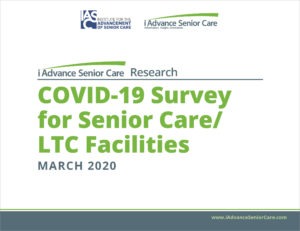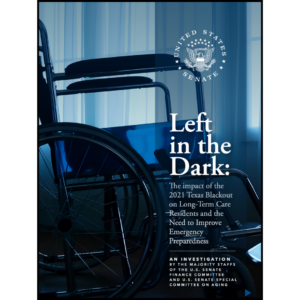Disaster Recovery Requires Pre-Planning
While every region in the United States has variable experience with frequency and magnitude of natural and man-made disasters, it is essential for long-term care providers of all types to recognize the importance of “All Hazards Disaster Preparedness” and the need to plan for disaster recovery long before an adverse event ever occurs. A wide variety of events in recent years ranging from major flooding to hurricane to power failure throughout many regions of the country underscores the need to ensure that long-term care facilities’ emergency operations plans (disaster plans) include a predetermined list of reliable resources that will help a provider recover as quickly, safely and cost-effectively as possible following a crisis or disaster.
In essence, long-term care providers need to plan for disaster recovery by ensuring that they have established relationships (memo of understanding, letter of agreement, contract, etc.) with reliable and trusted disaster recovery/restoration firms well in advance of any disaster or adverse event.
Here’s a good example of potential risk:
Serous isolated flooding occurred in Mesa, Ariz., following monsoon rains earlier this month. Several LTC providers in the area impacted by this unexpected event were immediately inundated by uninvited, less-than-reputable companies that showed up at facilities claiming to be disaster recovery “experts.” Some of these companies appeared to be carpet cleaners and others were obviously general contractors that had a trash pump and squeegees and were clearly looking for work. The type of company that simply “shows up” during such a peril trying to solicit work is definitely not the type of company that a healthcare provider should engage.
I recommend that SNF, ALF, ILF, CCRC or any type of LTC provider only utilize reputable companies that have been comprehensively vetted in advance of an emergency situation and guarantee that their agents are licensed, bonded and insured to complete this type of critical work. It is essential to ensure that a reputable disaster recovery/restoration firm specializing in this type of work is selected that has experience in a healthcare environment and fully understands the sensitive nature of a long-term care operations. Additionally, providers need to ask about the type of background checks that are completed on all of the company’s workers that will be in the facility during disaster recovery and restoration operations.
As all sectors of healthcare continue to improve disaster preparedness programs, it is important for all providers to understand that disaster recovery starts as soon as the disaster response begins. Make sure that your facilities have all of the essential resources identified and ready to go when disaster strikes and recovery begins.

Stan Szpytek is the president of consulting firm Fire and Life Safety, Inc., in Mesa, Arizona, and is the Life Safety/Disaster Planning Consultant for the Arizona Health Care Association and California Association of Health Facilities. Szpytek is a former deputy fire chief and fire marshal with more than 35 years of experience in life safety compliance and emergency preparedness. For more information, visit www.emallianceusa.com or email Szpytek at Firemarshal10@aol.com.
Related Articles
Topics: Disaster Preparedness , Executive Leadership , Facility management , Leadership , Risk Management










